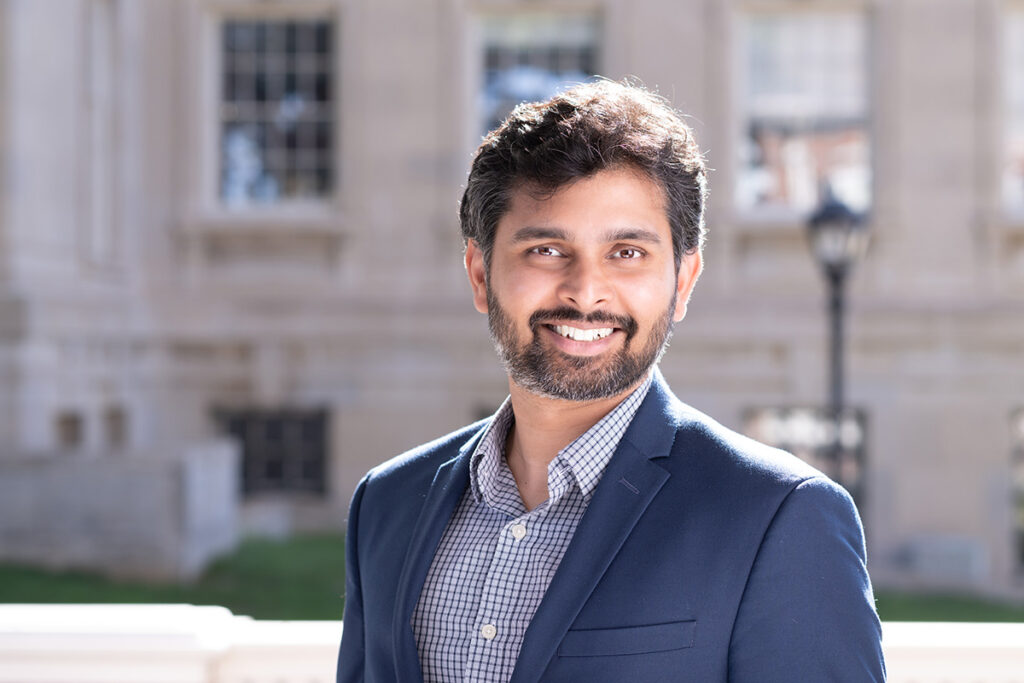
Chetan Cetty | Photo by Adam Atkinson
What I study and why: My main research is in political philosophy. I’m primarily interested in thinking about how much our ideals of justice and morality should be constrained by facts about how we behave and our present social norms. Often, when someone proposes an idea for how to make our society more just/morally better, we might respond by saying, “That sounds great, but it’s not feasible.” What makes a political proposal feasible? We don’t give up trying to enact certain changes even if they seem infeasible (e.g., eradicating sexism/racism). Moreover, many things that seemed infeasible to most of human history are feasible today (e.g., large-scale democracies, elimination of slavery). Should we give up ambitious political goals because they are ambitious and, if so, under what conditions? What draws me to these questions is the major role they play in our deepest political disagreements. For example, a common criticism of free-market ideology is that it relies on the implausible belief that people will not prey on each other for personal gain. Conversely, critics of big government often point to the corruptibility of political officials. Both criticisms appeal to claims about human nature. I examine these questions in the service of clarifying and resolving such disagreements.
This fall, I’m teaching: PHIL 120: Basic Social Questions and PHIL 260: Political Philosophy. The first course surveys several of the most pressing ethical debates in contemporary society, including abortion, gun control, climate change, economic inequality, open borders, and free speech. Students get introduced to influential philosophical arguments on either side of an issue (e.g., arguments for and against gun control). One thing that makes the course unique is its emphasis on oral communication. Students will debate each other in groups and give individual presentations analyzing arguments on these issues found in a social media platform (e.g., Reddit). The second class investigates the question “What justifies the state having the authority to impose coercive rules upon us?” by focusing on the most influential philosophical answer to it: contractarianism. Contractarians answer that a state could be justified in doing so because we would rationally consent to it. Students will be exposed to both arguments for this contractarian approach from the likes of Thomas Hobbes, John Locke, Jean Jacques Rousseau, John Rawls, and Robert Nozick, and criticisms of the approach from John Stuart Mill, Martha Nussbaum, Susan Okin, and others.
What students can expect from me: One of the things I love most is engaging in careful, reflective dialogue on some philosophical topic, and my classes reflect this. Students can expect classes with a heavy emphasis on discussion and debate (both among themselves and with me). This also extends to office hours. I think talking philosophy is one of the best ways to develop one’s critical views.
Getting to know me: My wife and I are parents to boy-girl toddler twins who consume our lives. They are bundles of joy, and we hope folks at Lafayette get to meet them sometime!
Continue reading to meet more of Lafayette’s newest faculty members.
